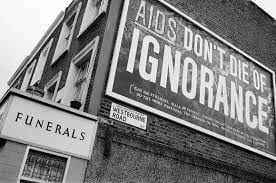My story begins in the 1980’s, when I completed an undergraduate degree in politics. It was a fascinating and eye-opening experience- I was the first person in my family to go to university and although I found some of the  culture quite alien (I went to a university where most of the students had been to public school and I hadn’t), I learnt a lot about the world and of course politics and that I think did prepare me for clinical education and practice and ultimately an academic career.
culture quite alien (I went to a university where most of the students had been to public school and I hadn’t), I learnt a lot about the world and of course politics and that I think did prepare me for clinical education and practice and ultimately an academic career.
I had completed the degree during the height of student activism- occupations of the university’s administration block were a regular occurrence. This was a new and exciting world- however when I finished the degree, I really didn’t know what to do- there was very high unemployment among young people and I had little experience of work, though I had volunteered in a women’s refuge for throughout my time at university. It was during my time at university that I had begun to embrace the women’s movement and that has remained a big part of my life ever since.

I started nursing, almost by accident, but from the outset I was fascinated by the people I met and their stories. From the women in their 80s who had been admitted to the asylum because they had become pregnant outside of marriage in the 1930s, and who remained there in the 1980s- to young children admitted with psychological problems. I qualified as a mental health nurse in 1986. My training was delivered entirely in a Victorian mental hospital which housed over a thousand patients, had its own railway, farm and shops. It was an almost total institution retaining the ‘airing courts’ (where patients were taken out to get air) of prisons. It contained the best and worst of humanity in terms of caring for people- some of the staff were inspirational and some were anything but inspirational. This experience couldn’t have been further from the degree I had pursued, but I found it so rewarding and interesting, and I knew one thing for sure- I wanted to change things for people with mental illness. I can still remember the fear and my heart pounding walking down the endless corridors to the ward where I first worked as a Nursing Assistant- stepping over the patients lying in the corridor, the noise that penetrates every part of you- and rather horrifyingly I stopped hearing after about three days- and stopped seeing the people lying there are as odd, I began to accept it- my socialization into institutionalized nursing of mentally ill people had begun.
After qualifying as a mental health nurse, I realized that I wanted to work in a community setting, away from the asylum. I worked in several roles, specialising initially in substance use, and was one of the first nurses to work with people diagnosed with HIV, at the height of alarmist stigma, when the disease didn’t have a name (it was called HTLV3) and managing a large caseload. In 1991 I was appointed to the role of Community Psychiatric Nurse with the Homeless Mentally Ill initiative, a joint national clinical research project funded by the Department of Health and the Department of the Environment. This led to my first educational role in the NHS; created following the recommendations of an inquiry into the death of Jonathan Newby, a lone volunteer worker, killed by a resident diagnosed with schizophrenia and alcohol problems. The inquiry recommended that
I worked in several roles, specialising initially in substance use, and was one of the first nurses to work with people diagnosed with HIV, at the height of alarmist stigma, when the disease didn’t have a name (it was called HTLV3) and managing a large caseload. In 1991 I was appointed to the role of Community Psychiatric Nurse with the Homeless Mentally Ill initiative, a joint national clinical research project funded by the Department of Health and the Department of the Environment. This led to my first educational role in the NHS; created following the recommendations of an inquiry into the death of Jonathan Newby, a lone volunteer worker, killed by a resident diagnosed with schizophrenia and alcohol problems. The inquiry recommended that education be provided to voluntary and third sector organisations working alongside the statutory sector to reduce risk and improve the care and treatment of homeless people with mental illness. This post gave me insight into the power of education to empower decision-making and increase control and confidence through knowledge. I delivered education to a range of voluntary sector workers including the Salvation Army, hostel workers, nuns in soup kitchens and housing support workers, whilst undertaking research into the lived experience of homeless people and working clinically. I realise that throughout my clinical career I worked with the most marginalised people- and it is they who have shaped me and my approach to education.
education be provided to voluntary and third sector organisations working alongside the statutory sector to reduce risk and improve the care and treatment of homeless people with mental illness. This post gave me insight into the power of education to empower decision-making and increase control and confidence through knowledge. I delivered education to a range of voluntary sector workers including the Salvation Army, hostel workers, nuns in soup kitchens and housing support workers, whilst undertaking research into the lived experience of homeless people and working clinically. I realise that throughout my clinical career I worked with the most marginalised people- and it is they who have shaped me and my approach to education.
It is from there (and via an MSc in mental health studies) that I started my story at City. All experience shapes you, teaches you and ultimately helps you become!



